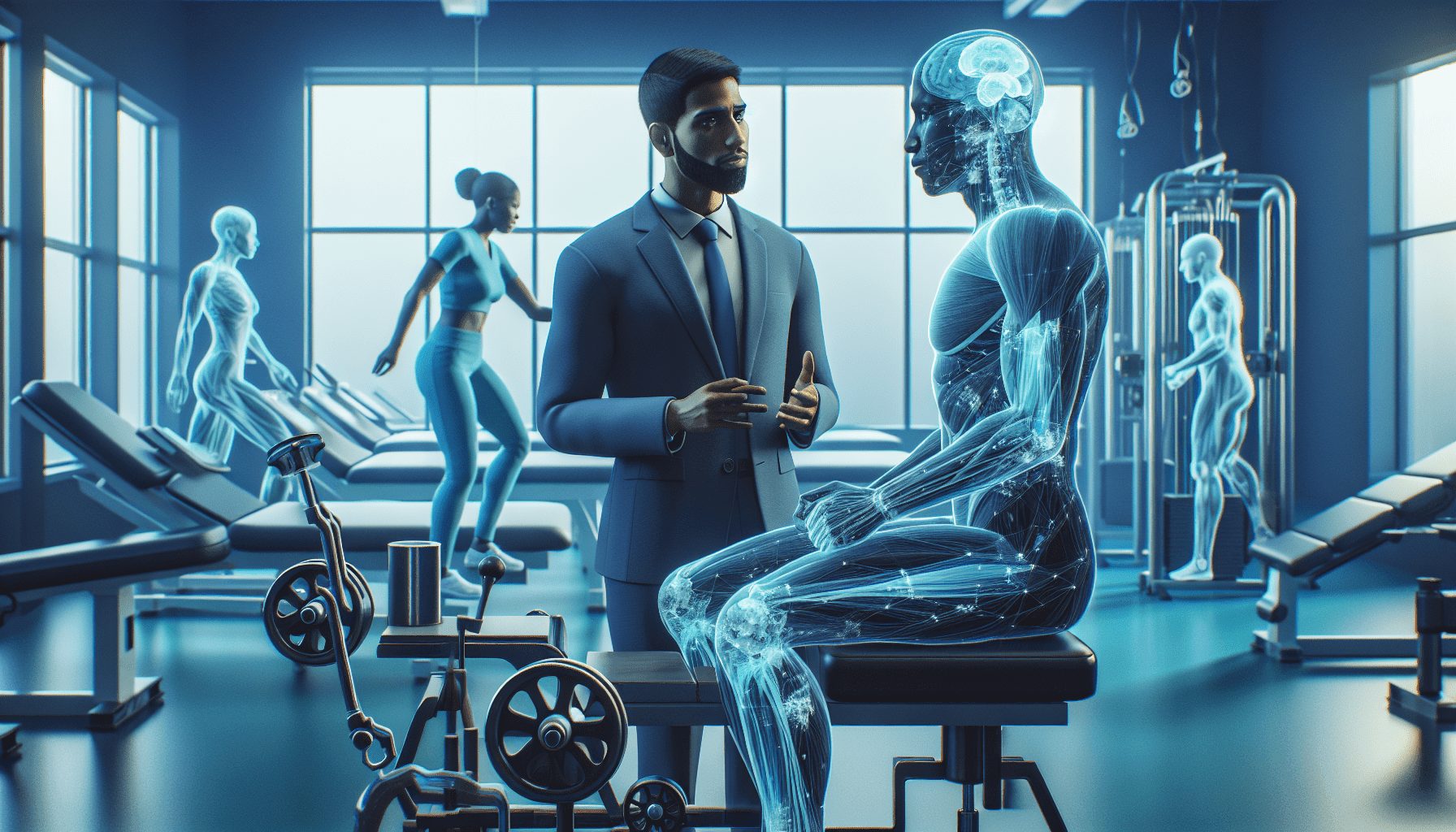The Future of Hiring: AI-Based Recruitment Platform
The landscape of hiring is undergoing a profound transformation, propelled by advancements in technology. As organizations strive to attract top talent in a highly competitive market, traditional recruitment methods are proving to be inadequate. In this era of digitalization, AI-based recruitment platforms have emerged as a game-changer, revolutionizing the way companies source, screen, and select candidates.
AI, an abbreviation for Artificial Intelligence, refers to the simulation of human intelligence in machines that are programmed to think and learn like humans. These platforms leverage AI algorithms and machine learning techniques to automate and optimize various aspects of the hiring process. By harnessing the power of AI, companies can gain a significant competitive advantage in identifying the most qualified candidates efficiently and effectively.
Intriguingly, AI-based recruitment platforms are not just a passing trend but rather a strategic investment for organizations seeking to streamline their hiring processes and improve the quality of their talent pool. From enhanced candidate screening to reduced bias in hiring, the benefits offered by these platforms are truly transformative. In the following sections, we will delve deeper into the advantages, explore how AI is used in recruitment platforms, discuss the challenges and ethical considerations, and provide insights on implementing an AI-based recruitment platform. Additionally, we will explore future trends and predictions in this rapidly evolving field.
So, fasten your seat belts and get ready to embark on an exciting journey into the future of hiring with AI-based recruitment platforms. This article will equip you with the knowledge and insights you need to navigate this innovative landscape and make informed decisions for your organization’s recruitment strategies. Let’s dive in!
Benefits of AI-Based Recruitment Platforms
AI-based recruitment platforms offer a multitude of benefits that can revolutionize the hiring process and elevate the candidate experience. Let’s explore some of the key advantages that make these platforms a game-changer for organizations.
Enhanced Candidate Screening
One of the most significant benefits of AI-based recruitment platforms is their ability to enhance candidate screening. Traditional methods of screening resumes and applications can be time-consuming and prone to human error. However, with the power of artificial intelligence, these platforms can analyze vast amounts of data in a fraction of the time it would take a human recruiter.
Using AI-powered algorithms, these platforms can quickly identify the most qualified candidates based on specific criteria set by the hiring manager. By leveraging techniques such as resume parsing and keyword matching, AI-based recruitment platforms can identify relevant skills, experiences, and qualifications that align with the job requirements. This not only saves valuable time for recruiters but also ensures that no potential candidate slips through the cracks.
Streamlined Hiring Process
Another significant advantage of AI-based recruitment platforms is their ability to streamline the hiring process. Traditional recruitment processes often involve numerous manual tasks, such as scheduling interviews, conducting background checks, and communicating with candidates. These tasks can be time-consuming and tedious, often leading to delays in the hiring process.
With AI-based platforms, many of these tasks can be automated, enabling recruiters to focus their energy on more strategic aspects of the hiring process. For example, automated screening and shortlisting can quickly identify the most promising candidates, while behavioral assessments can provide valuable insights into a candidate’s personality traits and suitability for the role.
Furthermore, AI-powered platforms can facilitate video interviews, allowing recruiters to evaluate candidates remotely and at their convenience. This not only saves time and resources but also widens the talent pool by accommodating candidates from different geographical locations.
Reduced Bias in Hiring
Addressing bias in the hiring process has been a longstanding challenge for organizations. Unconscious biases can inadvertently influence decisions and hinder diversity and inclusion efforts. AI-based recruitment platforms have the potential to mitigate bias by introducing a fair and objective evaluation process.
By leveraging advanced algorithms, these platforms can assess candidates based on their qualifications, skills, and experiences, rather than subjective factors such as gender, race, or ethnicity. This helps remove human biases and ensures that candidates are evaluated solely on their merit. Organizations that prioritize diversity and inclusion can greatly benefit from the unbiased nature of AI-based recruitment platforms.
Improved Candidate Experience
Last but certainly not least, AI-based recruitment platforms contribute to improving the overall candidate experience. Job seekers often face frustration and uncertainty during the application process, with long response times and lack of feedback being common pain points.
AI-powered platforms can provide candidates with real-time updates on the status of their application, reducing anxiety and providing transparency. Additionally, by automating certain tasks, such as sending personalized emails or scheduling interviews, candidates receive prompt and efficient communication, creating a positive impression of the organization.
Moreover, AI-based platforms can provide personalized recommendations to candidates, suggesting suitable job openings based on their skills and preferences. This not only enhances the candidate’s experience but also helps organizations attract and retain top talent.
In conclusion, AI-based recruitment platforms offer a host of benefits that can transform the hiring landscape. From enhanced candidate screening to a streamlined hiring process and reduced bias, these platforms empower organizations to make data-driven decisions and create a positive experience for both recruiters and candidates. Embracing the potential of AI-based recruitment platforms is key to staying ahead in the competitive world of talent acquisition.
How AI is Used in Recruitment Platforms
As the landscape of hiring continues to evolve, AI-based recruitment platforms have emerged as a game-changing solution for companies seeking efficient and effective ways to find top talent. These platforms leverage advanced artificial intelligence algorithms to streamline the hiring process and enhance candidate screening. Let’s delve into some of the key ways AI is used in recruitment platforms.
Resume Parsing and Keyword Matching
One of the primary functions of AI in recruitment platforms is resume parsing and keyword matching. Traditional methods of screening resumes can be time-consuming and prone to human error. However, AI-powered platforms can automatically extract relevant information from resumes and match them against predefined job requirements. By analyzing key phrases, skills, and qualifications, these platforms enable recruiters to quickly identify the most suitable candidates for a given position.
Automated Screening and Shortlisting
AI-based recruitment platforms excel in automating the initial stages of the hiring process. With automated screening and shortlisting capabilities, these platforms analyze candidate profiles based on predefined criteria. By examining factors such as education, experience, and skills, AI algorithms can efficiently filter out unqualified candidates, allowing recruiters to focus their efforts on candidates who are the best fit for the role.
Behavioral Assessments
Understanding a candidate’s behavioral traits and personality characteristics is crucial for making informed hiring decisions. AI-based recruitment platforms often incorporate behavioral assessments to evaluate candidates on various dimensions, such as communication skills, problem-solving abilities, and teamwork. By leveraging sophisticated algorithms, these platforms provide valuable insights into a candidate’s suitability for a specific role and company culture.
Video Interviews
In the era of remote work and global talent sourcing, video interviews have become increasingly popular. AI-powered recruitment platforms offer features that facilitate seamless video interviews. These platforms may include automated scheduling, interview recording, and even video analysis using facial recognition technology. By leveraging AI in video interviews, recruiters can gain a deeper understanding of candidates’ non-verbal cues and communication skills, even when conducting interviews remotely.
Predictive Analytics
Harnessing the power of data, AI-based recruitment platforms employ predictive analytics to enhance hiring outcomes. By analyzing vast amounts of historical data from previous hires, these platforms can identify patterns and correlations between candidate attributes and job performance. This enables recruiters to make data-driven decisions and predict the success of candidates in future roles. Predictive analytics also helps identify potential biases in the hiring process, enabling organizations to foster more inclusive and diverse workplaces.
Incorporating AI into recruitment platforms revolutionizes the way companies identify and hire top talent. By leveraging resume parsing, automated screening, behavioral assessments, video interviews, and predictive analytics, these platforms offer unprecedented efficiency and accuracy in the hiring process. However, it is important to consider the challenges and ethical considerations associated with AI-based recruitment platforms, as well as the implementation process. We will explore these aspects in the following sections.
Challenges and Ethical Considerations
As with any technological advancement, the integration of AI-based recruitment platforms into the hiring process comes with its own set of challenges and ethical considerations. It is important to address these concerns in order to ensure a fair and unbiased hiring process that respects the privacy and security of candidates. Let’s explore some of the key challenges and ethical considerations that organizations need to be mindful of when implementing AI-based recruitment platforms.
Data Privacy and Security
One of the primary concerns with AI-based recruitment platforms is the handling of candidate data. These platforms rely on vast amounts of personal and professional information to make informed hiring decisions. Organizations must take proactive measures to safeguard this data and ensure its privacy and security. This includes implementing robust data protection protocols, employing encryption techniques, and adhering to strict data retention policies. Additionally, organizations should be transparent with candidates about how their data will be used and stored, providing them with the necessary reassurance that their information is being handled responsibly.
Potential for Bias in AI Algorithms
While AI algorithms have the potential to streamline and improve the hiring process, they are not immune to biases. AI algorithms are developed using historical data, which means they can inadvertently perpetuate existing biases present in the data. For example, if historical data reflects a bias towards certain demographics or educational backgrounds, the AI algorithm may unknowingly favor candidates from those groups. This can result in discriminatory hiring practices that are both unethical and illegal.
To mitigate this risk, organizations must ensure that their AI algorithms are developed and regularly audited by a diverse team, including individuals from different backgrounds and perspectives. This helps to identify and address any biases in the algorithms, ensuring a fair and inclusive hiring process. Additionally, organizations should regularly monitor and evaluate the performance of their AI algorithms to detect any potential biases and take corrective measures if necessary.
Human Interaction vs. Automation
Another ethical consideration when implementing AI-based recruitment platforms is striking the right balance between human interaction and automation. While AI algorithms can efficiently screen and shortlist candidates, there is still a need for human judgment and intuition in the hiring process. Some candidates may possess intangible qualities that cannot be accurately assessed by AI algorithms alone.
Organizations should ensure that there is a human element involved in the decision-making process, especially when it comes to final candidate selection. This can be achieved by integrating AI-based recruitment platforms with human recruiters who can provide valuable insights, conduct interviews, and make informed decisions based on a holistic assessment of the candidates.
By carefully considering and addressing these challenges and ethical considerations, organizations can harness the power of AI-based recruitment platforms while upholding the principles of fairness, privacy, and inclusivity in the hiring process.
Read more about AI-based recruitment platforms and how they can revolutionize your hiring process here.
Implementing an AI-Based Recruitment Platform
As the landscape of hiring continues to evolve, implementing an AI-based recruitment platform has become a strategic imperative for many organizations. This section will guide you through the process of incorporating this cutting-edge technology into your hiring practices.
Assessing Your Hiring Needs
Before diving into the world of AI-based recruitment platforms, it’s crucial to assess your organization’s unique hiring needs. What are the pain points in your current hiring process? Are you struggling with high volumes of applicants, lengthy screening processes, or biased decision-making? Understanding your specific challenges will help you identify the areas where AI can make the most significant impact.
Take the time to evaluate the desired outcomes of implementing an AI-based recruitment platform. Are you looking to improve candidate quality, reduce time-to-hire, or enhance the candidate experience? By clearly defining your objectives, you can align them with the capabilities of different AI tools and technologies, ensuring a successful implementation.
Choosing the Right Platform
With a wide range of AI-based recruitment platforms available in the market, selecting the right one for your organization can be a daunting task. Begin by conducting thorough research and exploring various options. Look for platforms that align with your hiring needs, offer the functionalities you require, and have a proven track record of success.
Consider factors such as resume parsing and keyword matching, automated screening and shortlisting, behavioral assessments, video interviews, and predictive analytics. These features can significantly streamline your hiring process and improve the quality of your candidate pool.
Furthermore, evaluate the platform’s compatibility with your existing systems and workflows. Will it seamlessly integrate with your applicant tracking system (ATS) or other HR software? Integration is key to ensure a smooth transition and avoid disruptions in your hiring operations.
Integrating AI into Existing Processes
Once you have chosen the right AI-based recruitment platform, the next step is to integrate it into your existing processes. This involves mapping out the workflow and identifying the touchpoints where AI can be most effective.
Start by identifying the stages in your hiring process that can benefit from AI automation. This could include tasks such as resume screening, candidate shortlisting, or even conducting preliminary interviews. By automating these repetitive and time-consuming tasks, you can free up your hiring team’s valuable time, allowing them to focus on more strategic activities.
Collaboration between your HR team and the AI platform provider is crucial throughout the integration process. This ensures a smooth implementation and helps address any challenges or concerns that may arise. Training and onboarding sessions should be conducted to familiarize your team with the platform’s functionalities and ensure they can make the most of its capabilities.
Training and Onboarding
Training and onboarding are vital components of implementing an AI-based recruitment platform successfully. Your HR team should receive comprehensive training on how to effectively use the platform and make the most of its features.
During the onboarding process, it’s important to establish clear guidelines and best practices for using the AI platform. This includes defining how to interpret the platform’s recommendations, understanding its limitations, and ensuring compliance with legal and ethical standards. By providing your team with the necessary knowledge and resources, you can maximize the benefits of the AI platform and minimize any potential pitfalls.
Remember, implementing an AI-based recruitment platform is not a one-time event. Continuous monitoring, evaluation, and optimization are key to ensuring its long-term success. Regularly review the platform’s performance, collect feedback from your hiring team, and make necessary adjustments to further improve your hiring process.
By following these steps, you can implement an AI-based recruitment platform that aligns with your organization’s hiring needs, streamlines your processes, and ultimately helps you find the best candidates for your open positions.
To learn more about AI-based recruitment platforms and how they can revolutionize your hiring process, check out our blog post on AI Recruiting Tools.
Future Trends and Predictions
As technology continues to advance at an astonishing pace, the future of hiring is poised to undergo significant transformations. In this section, we will explore some of the exciting trends and predictions that are likely to shape the landscape of recruitment in the coming years.
Advancements in Natural Language Processing
One of the most promising areas of development in the field of AI-based recruitment platforms is Natural Language Processing (NLP). NLP is a branch of artificial intelligence that focuses on enabling computers to understand and interpret human language.
In the context of recruitment, NLP holds immense potential for revolutionizing the way resumes and job descriptions are analyzed. With the help of sophisticated algorithms, AI-powered recruitment platforms can extract valuable insights from resumes, including skills, qualifications, and experience. This enables recruiters to swiftly identify the most suitable candidates for a given position, saving both time and effort.
Furthermore, NLP can also enhance the candidate experience by enabling chatbots to engage in natural and meaningful conversations with applicants. These chatbots can answer questions, provide updates, and even schedule interviews, ensuring that candidates feel supported and engaged throughout the hiring process.
Virtual Reality in Recruitment
Another exciting trend on the horizon is the integration of Virtual Reality (VR) into the recruitment process. VR technology can provide candidates with immersive and interactive experiences that simulate real-world work environments. This allows candidates to showcase their skills and abilities in a more tangible and engaging manner.
For instance, imagine a scenario where a candidate for a design position can use VR to showcase their portfolio in a virtual gallery, allowing recruiters to explore their work in a dynamic and interactive way. Similarly, candidates for customer service roles can engage in simulated interactions with virtual customers to demonstrate their communication and problem-solving skills.
By leveraging VR technology, recruiters can gain deeper insights into a candidate’s capabilities, creativity, and adaptability, ultimately making more informed hiring decisions.
Enhanced Candidate Engagement
In an increasingly competitive job market, candidate engagement has become a crucial aspect of the recruitment process. AI-based recruitment platforms are well-positioned to address this challenge by leveraging advanced technologies to enhance candidate engagement.
Through personalized communication and tailored interactions, AI-powered platforms can create a more engaging and user-centric experience for candidates. Automated chatbots can provide real-time updates, answer frequently asked questions, and guide candidates through each stage of the hiring process. This not only keeps candidates informed and engaged but also helps to streamline the overall recruitment journey.
Moreover, AI algorithms can analyze candidate feedback and preferences to deliver customized job recommendations, ensuring that candidates are matched with positions that align with their skills and aspirations. This personalized approach not only benefits the candidates but also helps organizations attract and retain top talent.
In conclusion, the future of hiring is brimming with exciting possibilities. Advancements in Natural Language Processing, the integration of Virtual Reality, and enhanced candidate engagement are just a glimpse of what lies ahead. As AI-based recruitment platforms continue to evolve and mature, they will undoubtedly shape the way organizations identify, attract, and hire the best talent.
Stay tuned for the concluding section, where we will summarize the key takeaways from this article and provide a comprehensive overview of the future of AI-based recruitment platforms.
Conclusion
In conclusion, the future of hiring is undoubtedly being shaped by the emergence of AI-based recruitment platforms. These innovative tools offer a wide range of benefits that can revolutionize the hiring process for employers and candidates alike.
One of the key advantages of AI-based recruitment platforms is the enhanced candidate screening capabilities they provide. By leveraging advanced algorithms and machine learning, these platforms can quickly analyze resumes, identify relevant keywords, and match candidates to job requirements more effectively. This not only saves time for hiring managers but also ensures that the most qualified candidates are given the opportunity to move forward in the hiring process.
Furthermore, AI-based recruitment platforms streamline the entire hiring process. From automated screening and shortlisting to behavioral assessments and video interviews, these tools eliminate manual tasks and expedite the selection of top candidates. By automating repetitive tasks, recruiters can focus their time and energy on engaging with candidates and making informed decisions.
A particularly compelling aspect of AI-based recruitment platforms is their potential to reduce bias in hiring. Traditional hiring processes can inadvertently introduce bias, whether it be conscious or unconscious. However, AI algorithms are designed to be objective and impartial, ensuring that candidates are evaluated based on their qualifications and fit for the role. This leads to a fairer and more inclusive hiring process.
Lastly, AI-based recruitment platforms offer an improved candidate experience. By leveraging AI technology, these platforms can provide personalized feedback, offer real-time updates, and create a seamless and user-friendly application process. This not only enhances the candidate’s perception of the company but also increases the likelihood of attracting top talent.
While AI-based recruitment platforms offer numerous benefits, it is important to consider the challenges and ethical considerations that come with their implementation. Data privacy and security are paramount, as these platforms handle sensitive candidate information. Additionally, there is a need to ensure that AI algorithms are free from bias and that human interaction is not completely replaced by automation. Striking the right balance between technology and human touch is essential.
Implementing an AI-based recruitment platform requires careful assessment of hiring needs, choosing the right platform, and integrating AI into existing processes. Adequate training and onboarding are also crucial to ensure that recruiters and hiring managers can effectively utilize these tools to their fullest potential.
Looking ahead, the future of AI-based recruitment platforms holds exciting possibilities. Advancements in natural language processing will enable even more accurate resume parsing and keyword matching, while virtual reality may be incorporated to enhance candidate engagement and assessment. The possibilities for leveraging AI in recruitment are vast, and organizations that embrace these technologies stand to gain a competitive edge.
In conclusion, AI-based recruitment platforms are transforming the hiring landscape, offering enhanced candidate screening, streamlined processes, reduced bias, and improved candidate experiences. As the technology continues to evolve, it is essential for organizations to embrace these tools and adapt their hiring practices to stay ahead in today’s competitive job market.
To learn more about AI recruitment and the best tools available, visit Engaged Headhunters, an AI recruitment agency specializing in cutting-edge AI recruitment software and tools.







